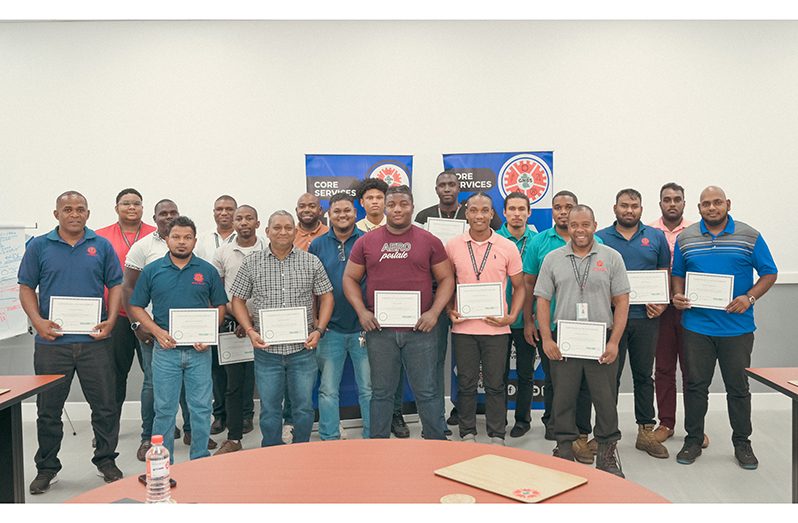Energy Efficiency Standards and Labelling (EESL) programmes are globally recognised as powerful tools to drive the adoption of renewable energy and energy-efficient technologies. In Guyana, these programmes hold immense promise in advancing the objectives of the Low Carbon Development Strategy (LCDS) 2030 and fulfilling the country’s commitments under international climate agreements. However, their success depends on sustained investments in capacity building to empower stakeholders and decision-makers.
This week, the Guyana National Bureau of Standards (GNBS), in collaboration with the Department of Environment and Climate Change (DECC) within the Office of the President, the United Nations Development Programme (UNDP), and the Guyana Energy Agency (GEA), conducted a series of sensitisation workshops on Energy Efficiency Standards and Labelling in Guyana. The workshops, facilitated by UNDP Consultant Jacob Kurian, were hosted at the GNBS on January 6 and at the Cara Lodge Hotel in Georgetown on January 8 and 9, 2025.

EMPOWERING STAKEHOLDERS THROUGH STANDARDS
Quincy Troyer, Head of the Product Compliance Department at GNBS, highlighted the critical role of standards in promoting energy efficiency. “The National Standards for energy-efficient products help Inspectors perform their duties more effectively,” he explained. “We encourage the use of energy-efficient products to reduce costs and lower electricity consumption. Education and awareness are key to ensuring compliance.”
Since 2021, GNBS has introduced three standards addressing Minimum Energy Performance and energy labelling for electrical appliances: GYS 576:2021 for refrigerating appliances; GYS 577:2021 for compact fluorescent and LED lamps; and GYS 578:2021 for air conditioners.
These are supported by the foundational mandatory standard GYS 9-1:2017, which outlines general requirements for product labelling. Gradually, GNBS plans to enforce compliance with these standards to encourage sustainable energy practices. Energy-efficient products will join the list of 17 product categories currently monitored by the Bureau.
TRAINING FOR A GREENER FUTURE
The workshops covered a range of topics, including national actions to combat climate change, the current energy scenario, progress in sustainable energy, and the scope of the energy efficiency standards and labelling programme in Guyana. Senior Energy Engineer at GEA, Olson Abrams, elaborated on the practical insights shared during the sessions. “We examined energy use patterns, costs, and sources of energy loss to help participants understand the energy footprint of different appliances,” he noted.
Programme Analyst for Energy, Environment, and Extractive Industries at UNDP Guyana, Colin Mattis, underscored the broader significance of these initiatives. “By fostering innovation and market transparency, energy efficiency standards strengthen Guyana’s LCDS and reinforce its global climate commitments,” he said. “The UNDP is proud to support this transformative initiative, paving the way for a greener, more energy-efficient future for all Guyanese.”
In tandem with the workshops, Inspectors from the GNBS Legal Metrology Department completed a five-day training session on International Organisation of Legal Metrology (OIML) Standards. Facilitated by Trillium Measurement and Control, a Canadian leader in process control solutions, the training covered advanced topics such as meter proving, LPG theory, tolerances, and meter technologies. This effort aims to enhance Inspectors’ ability to verify the accuracy of bulk meters and LPG meters, ensuring fairness and reliability for stakeholders.
The GNBS’s ongoing efforts in capacity building and stakeholder engagement underline its commitment to fostering a culture of quality through standards. As Guyana continues its journey toward sustainable development, initiatives like the EESL programme are crucial in reducing energy consumption and lowering greenhouse gas emissions.
For more information, the GNBS can be reached via telephone at 219-0064-66, the GNBS hotline at 219-0069, or WhatsApp at 692-4627.



.jpg)








